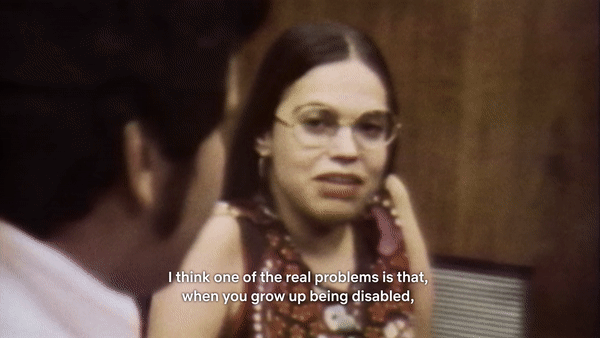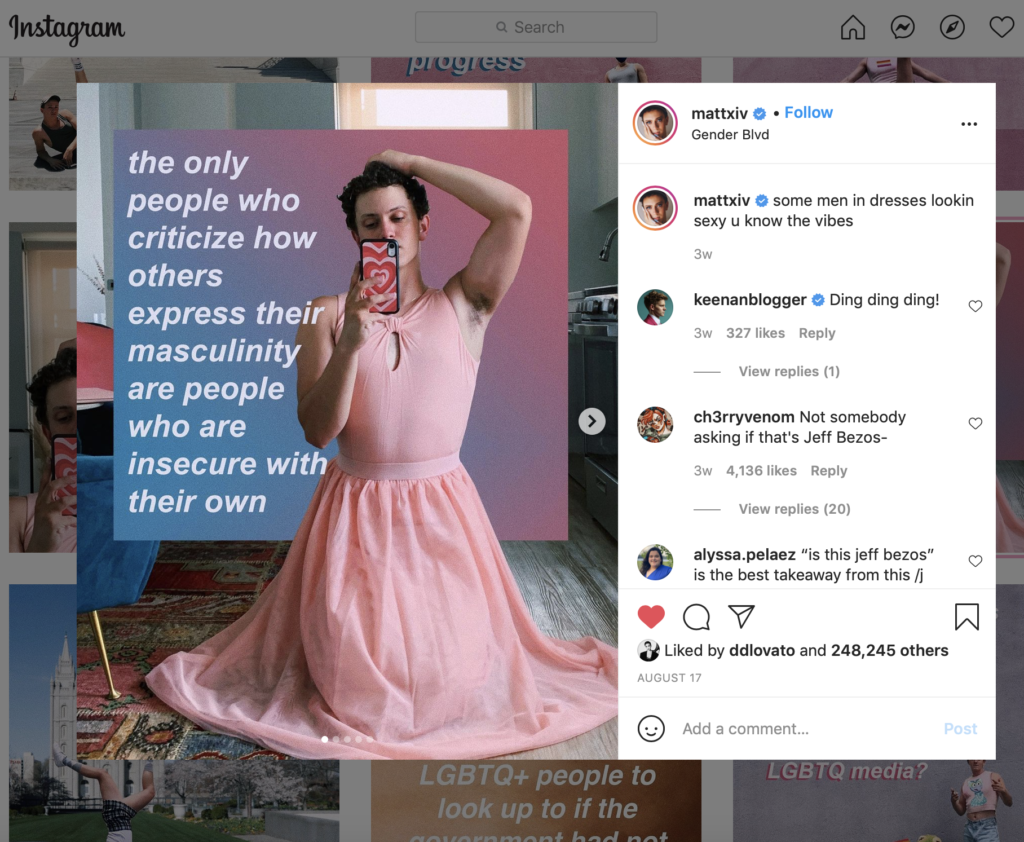Same as Jasmin, I grew up in a Hispanic household. I am the oldest of three, and like Jasmin, I had many responsibilities around the house. In my home, things such as sexuality and gender were never discussed. It was instead a more taboo topic that was never to be brought up and something my parents had no interest in trying to understand. To take it farther almost my whole life, I had gone to Catholic school, which just further led to my misunderstandings and lack of knowledge. It was not until I was in about my senior year did I really begin to learn the difference between sex and gender.
“Gender is a cultural construct that shifts between societies and across time” (Myers, 2018). Growing up in a Catholic school, just like most schools, we had a strict dress code that always seemed more rigid on the girls. All of the usual dress code rules where skirts were measured, no exposed shoulders, etc. While the boy’s soccer team got brand new jerseys for the season, we received the same hand-me-downs from the year’s past teams. The worst class was religion, where it is nothing against the religion itself; instead, it is the way the teachers would paint the woman as Myers described to be “soft, submissive, quiet” while the men were “strong, aggressive, tough, loud.” For a tomboy with a big mouth and never able to shut up as a child, this was always crazy to wrap my head around, especially when I was constantly being told to lower my voice because I was speaking too loud, even when boys are shouting at each other on the other end of the room. As Shavoya mentioned in her response that I thought was so true was parents play a significant role in who their child turns out to be. Growing up with parents who would not talk about sex and gender in a school that only encouraged not discussing self-discovery was difficult. Myers, however, puts it in a way I think is what should be taught at a young age which is that gender expression can change over time and sexual orientation can fluctuate over time. If I had been taught that at a younger age, I do think I would have felt more confident in my clothing choices.
Like Jasmin, I too preferred to dress on the more tomboy side when I was younger and still do most days now, which was the complete opposite of my very girly younger sister. Myers describes gender expression as “how a person shows their gender identity,” but I do not know if they always do align. For example, when I was a child getting into a dress was like pulling teeth. I felt awkward and out of place in dresses. Today I usually do like to wear pants and shorts, but sometimes I also enjoy wearing a dress or skirt depending on my mood. Some days I wear no makeup, and others, I love to wear a new full-faced look I practiced. I dress how I feel most comfortable that day and although I identify as female some days, my clothing may be described as being more masc. I believe that speaks to society’s idea that goes back to the blue for boys and pink for girls. In my snapshot, I mentioned they are marketed one way for girls being a lot of pinks, barbie, tiny kitchens, and one way for boys, a lot of blue, dinosaurs, monster trucks. Society had decided to put a label on clothing making a boy who wants to wear traditionally female clothes or a girl who wants to wear traditionally male clothes question their identity. Even the term “tomboy” when one goes, oh, they are just a tomboy to imply they are more masculine when that is just how they feel most comfortable dressing. I believe that establishing that sex and gender are not the same thing is an essential step in making progress.



